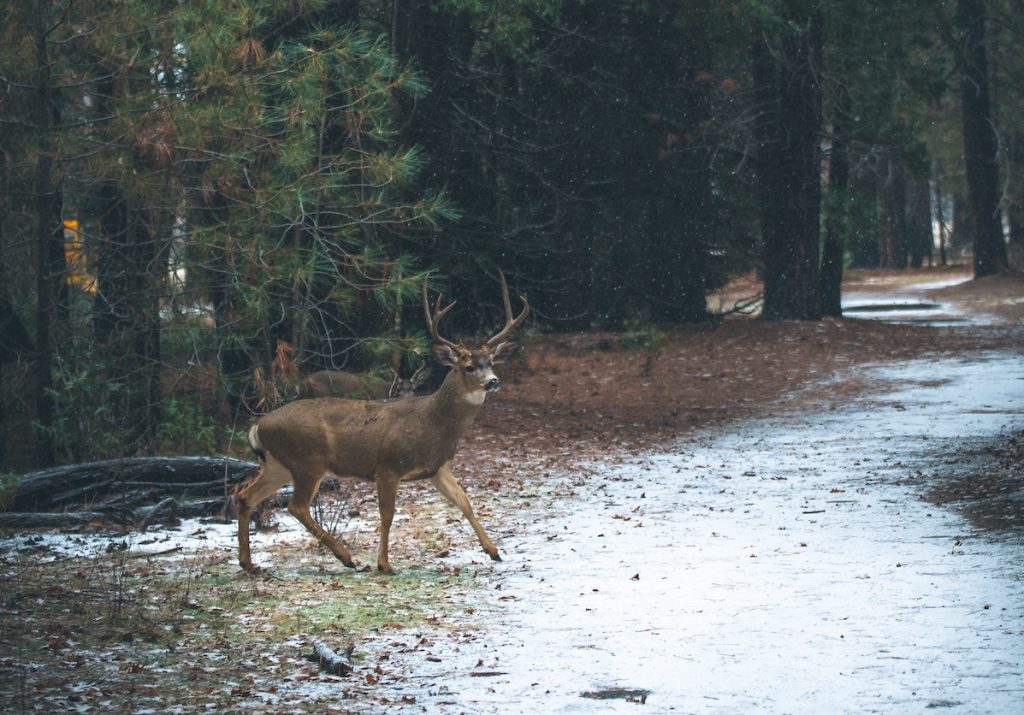Is it legal to hunt deer at night?
In most states, it is legal to hunt deer at night with artificial light. However, there may be specific regulations in place regarding the use of artificial lights, so it is always best to check with your state’s fish and wildlife department before hunting at night. Some states also require a permit for hunting deer at night. Again, it is best to check with your state’s fish and wildlife department for specific regulations.
It should also be noted that while most states allow hunting deer at night with artificial light, there are some exceptions. For example, Alabama specifically prohibits the use of artificial lights while hunting deer. So, if you plan on hunting deer in Alabama, you’ll need to do so during the daytime hours.
Overall, it is generally legal to hunt deer at night with artificial light in most states. However, there may be some specific regulations in place that you need to be aware of. It is always best to check with your state’s fish and wildlife department before hunting at night to make sure you are following all the applicable laws and regulations.
What are the benefits of hunting deer at night?
There are a few benefits to hunting deer at night with artificial light. First, it allows you to extend your hunting day beyond the traditional daylight hours. This can be especially beneficial during the winter months when the days are shorter and there is less time to hunt during the day. Additionally, hunting deer at night can help you avoid other hunters who may be out during the daytime hours. Finally, some hunters find that deer are more active at night, making them easier to spot and stalk.
Overall, there are a few benefits to hunting deer at night with artificial light. However, it is always best to check with your state’s fish and wildlife department before doing so to make sure you are following all applicable laws and regulations.
What are the challenges of hunting deer at night?
While there are some benefits to hunting deer at night, there are also some challenges that you need to be aware of. First, it can be more difficult to see deer at night, even with the use of artificial lights. This can make it more challenging to take a clean shot. Additionally, deer tend to bed down during the nighttime hours, so you may have to walk further distances to find them. Finally, you need to be extra careful when using artificial lights while hunting as you don’t want to startle the deer or disturb other hunters who may be in the area.
How can you increase your chances of success when hunting deer at night?
There are a few things you can do to increase your chances of success when hunting deer at night. First, make sure you are using a powerful artificial light so that you can see the deer clearly. Second, try to find an area where the deer are known to bed down for the night. This will give you a better chance of finding them. Finally, be as quiet as possible when stalking the deer so that you don’t startle them and scare them off.
What gear do you need to hunt deer at night successfully?
In order to hunt deer at night successfully, you will need some specific gear. First, you will need a powerful artificial light so that you can see the deer clearly. Second, you will need a quiet means of transportation so that you don’t startle the deer when you are moving around. Finally, you will need a good hunting rifle so that you can take a clean shot in low light conditions.
What are some tips for avoiding detection when hunting deer at night?
There are a few things you can do to avoid detection when hunting deer at night. First, make sure you are using a powerful artificial light so that you can see the deer clearly. Second, try to find an area where the deer are known to bed down for the night. This will give you a better chance of finding them. Finally, be as quiet as possible when stalking the deer so that you don’t startle them and scare them off.
Overall, there are a few things you can do to increase your chances of success when hunting deer at night with artificial light. However, it is always best to check with your state’s fish and wildlife department before doing so to make sure you are following all applicable laws and regulations. Additionally, be aware of the challenges that come with hunting at night so that you can be as prepared as possible.
